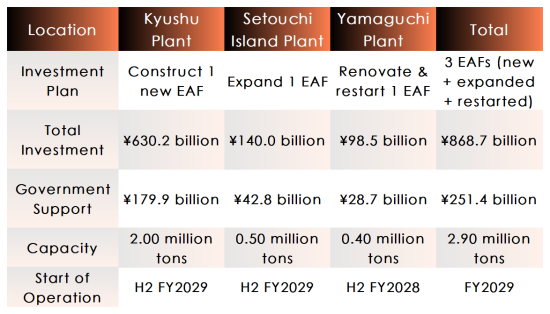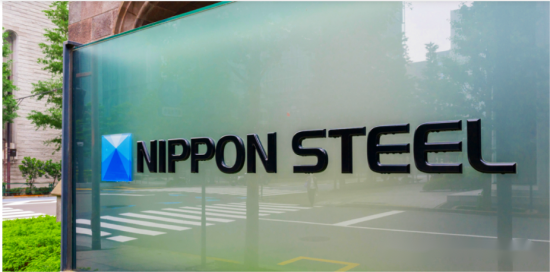【Low-Carbon Steel】Nippon Steel's Electric Arc Furnace Capacity to Reach 2.9 Million Tons by FY2029

Graphite electrodes are essential components in electric arc furnace steelmaking. They play a vital role in arc heating, offering excellent electrical conductivity and high-temperature resistance, and are crucial for enhancing the efficiency and quality of EAF steel production.
【Low-Carbon Steel】Nippon Steel's Electric Arc Furnace Capacity to Reach 2.9 Million Tons by FY2029
On March 1, 2021, Nippon Steel announced a three-pathway approach to achieve carbon neutrality—mass production of high-grade steel using large-capacity electric arc furnaces (EAF), direct reduction of iron with hydrogen, and blast furnace hydrogen injection.
By the end of May, supported by Japan's newly enacted Green Transformation Promotion Act, Nippon Steel announced a process transformation investment plan totaling 868.7 billion yen (approximately 6.48 billion USD). The plan entails shifting from the traditional blast furnace-basic oxygen furnace route to electric arc furnace production to significantly reduce carbon emissions and improve production efficiency, aiming for carbon neutrality by 2050. Through building new, expanding, and restarting EAFs, Nippon Steel's EAF steel capacity is expected to reach 2.9 million tons by the end of FY2029, with detailed investment plans as outlined.

This transformation investment plan has received strong backing from the Japanese government, which selected Nippon Steel as part of the "2025–2029 Energy and Production Process Transformation Support Project" under the Green Transformation (GX) Promotion Act. This act incentivizes companies to adopt greener technologies and practices.
Nippon Steel's EAF investment projects at its Kyushu, Setouchi, and Yamaguchi plants total 868.7 billion yen, with government support capped at 251.4 billion yen. The investments cover public auxiliary equipment, logistics, power supply, and downstream process energy.

Nippon Steel's low-carbon transformation investment focuses not only on increasing EAF steel capacity but also on steel product quality. The new EAFs will be equipped with advanced technologies to produce high-quality steel.
While the goal is to enhance environmental benefits, the transformation carries financial risks due to the large investment scale and potential cost increases from raw material and electricity price rises.
In external market development, Nippon Steel actively participates in promoting Japan's green steel market, advocating for visualization of carbon reduction effects, expanding procurement of green steel products, encouraging corporate emission reductions, and ensuring green investments and products receive proper value and returns. Nippon Steel also collaborates with the World Steel Association and other organizations to jointly establish global standards for green steel production.
Feel free to contact us anytime for more information about the EAF Steel market. Our team is dedicated to providing you with in-depth insights and customized assistance based on your needs. Whether you have questions about product specifications, market trends, or pricing, we are here to help.
No related results found








0 Replies